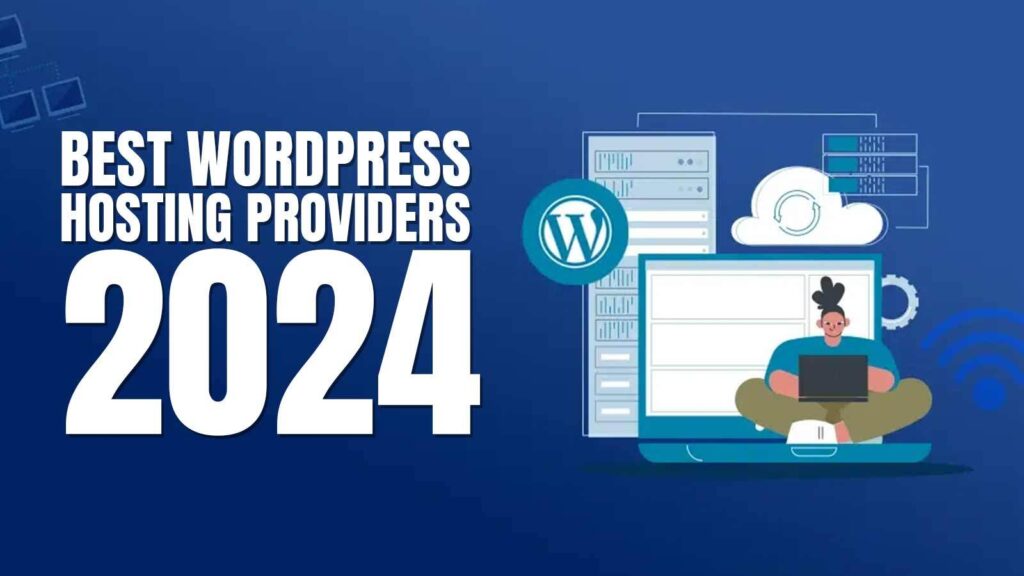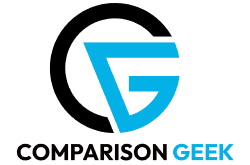Choosing the right hosting for your WordPress site is crucial for your SEO. A good host can improve your site’s speed, uptime, and overall performance, which are essential factors for ranking high on search engines. In this guide, we’ll explore some of the best SEO hosting options for WordPress and their pros and cons.

Table of Contents
ToggleTypes of Hosting Available
1. IONOS
Pros:
Affordable Plans:
IONOS provides a range of cost-effective hosting plans starting as low as a few dollars per month. This affordability makes it an attractive option for beginners, small businesses, and anyone on a budget. Their entry-level plans offer essential features without compromising on quality, making it easier for new website owners to get started without a significant financial investment.
Fast Load Times:
Speed is a critical factor for SEO, and IONOS excels in this area with performance-focused servers designed for quick page loading. They utilize state-of-the-art data centers equipped with SSD storage and optimized server configurations. This infrastructure ensures that websites hosted on IONOS load rapidly, providing a better user experience and potentially higher rankings on search engines.
Security Features:
IONOS prioritizes security by offering robust protective measures. This includes DDoS protection to guard against cyber attacks that can disrupt your site, and daily backups to ensure your data is safe and can be restored easily if needed. Additionally, they provide SSL certificates to encrypt data transmitted between your site and its visitors, further enhancing security and trustworthiness.
Cons:
Customer Support:
While IONOS offers 24/7 customer support, some users have reported inconsistent experiences. Issues include long wait times and unhelpful responses, which can be frustrating when you need quick and effective assistance. This variability in support quality might be a concern if you anticipate needing frequent help.
Complex Interface:
The IONOS control panel, though powerful, can be somewhat overwhelming for users who are not technically inclined. The interface includes many advanced features and settings that might confuse beginners or those not familiar with web hosting terminology. This complexity can make it challenging to perform simple tasks without a steep learning curve.
2. Kinsta
Pros:
Excellent Speed and Performance:
Kinsta leverages the power of the Google Cloud Platform, which is renowned for its high performance and reliability. This infrastructure ensures that your website benefits from fast load times, high availability, and minimal downtime. Kinsta’s use of cutting-edge technology, including LXD-managed hosts and Nginx servers, further enhances performance, making it an ideal choice for sites that require optimal speed and uptime.
User-Friendly Dashboard:
Kinsta offers an intuitive and user-friendly dashboard known as MyKinsta. This control panel is designed to simplify website management with a clean interface and straightforward navigation. Users can easily perform tasks such as site monitoring, backups, and performance analytics. The dashboard’s design minimizes the learning curve, making it accessible for both beginners and experienced users.
Premium Support:
Kinsta provides exceptional customer support through a team of WordPress experts available 24/7. Their support staff is highly responsive and knowledgeable, offering quick resolutions to issues. Support is available via live chat, ensuring that you can get help whenever you need it. Kinsta’s commitment to high-quality support means you can rely on them for assistance with any technical challenges or inquiries.
Cons:
Higher Cost:
Kinsta’s premium services come at a higher price point compared to many other hosting providers. Their plans are designed to offer top-tier performance and support, but this makes them less suitable for budget-conscious users or small businesses with limited resources. The higher cost might be a barrier for some, especially those who do not need the advanced features and performance levels provided by Kinsta.
Limited Email Hosting:
One notable drawback of Kinsta is the absence of email hosting services. Users who require email accounts for their domain will need to seek a separate provider for this purpose, which can add to the overall cost and complexity. This limitation might be inconvenient for those looking for an all-in-one hosting solution that includes email hosting as part of the package.
3. Hostinger
Pros:
Budget-Friendly:
Hostinger is known for its extremely affordable hosting plans, making it an excellent choice for startups, small websites, and individuals on a tight budget. Their pricing is competitive, often featuring promotions and discounts that lower the cost even further. Despite the low cost, Hostinger provides a robust set of features that deliver good value for money, allowing new website owners to get started without significant financial investment.
Fast Loading Times:
Hostinger employs LiteSpeed caching technology to enhance website performance. LiteSpeed servers are optimized for speed, ensuring that your site loads quickly and efficiently. This rapid load time is crucial for maintaining user engagement and improving SEO rankings. Hostinger’s infrastructure is designed to handle high traffic volumes without compromising on speed, making it a reliable choice for performance-conscious users.
Easy to Use:
The CPanel, Hostinger’s custom control panel, is designed with simplicity and ease of use in mind. Its intuitive interface allows beginners to manage their websites without the need for technical expertise. Users can easily perform tasks such as setting up domains, managing emails, and installing WordPress with just a few clicks. This user-friendly design helps reduce the learning curve, making website management accessible to everyone.
Cons:
Limited Resources:
While Hostinger’s lower-tier plans are affordable, they come with limited resources such as reduced storage space, bandwidth, and fewer features. These constraints can become restrictive as your website grows and demands more resources. Users with expanding sites might need to upgrade to higher-tier plans to accommodate increased traffic and functionality, which can increase costs over time.
Customer Support:
Hostinger offers customer support that is generally reliable, but some users have reported slower response times during peak periods. While the support team is knowledgeable and helpful, the occasional delays in receiving assistance can be frustrating, especially if you encounter critical issues that need immediate resolution. This variability in support responsiveness might be a concern for users who prioritize prompt and consistent support services.
4. Namecheap
Pros:
Cost-Effective:
Namecheap is renowned for its affordable hosting prices, offering budget-friendly plans that provide good value for money. This makes it an ideal option for individuals, small businesses, and startups looking to minimize their hosting expenses without sacrificing essential features. Namecheap’s competitive pricing structure includes various hosting plans to suit different needs and budgets.
Free Domain:
One of the standout benefits of Namecheap’s hosting plans is the inclusion of a free domain for the first year. This perk helps users save additional costs and simplifies the process of setting up a new website. Having both the hosting and domain registration handled by a single provider streamlines management and reduces administrative hassle.
Security Features:
Namecheap takes security seriously, offering free SSL certificates with their hosting plans. SSL certificates are crucial for encrypting data transmitted between your site and its visitors, enhancing trust and security. Additionally, Namecheap provides various other security features, such as domain privacy protection and advanced DDoS protection, ensuring your site remains secure from cyber threats.
Cons:
Performance Issues:
Some users have reported slower load times when using Namecheap compared to other hosting providers. While Namecheap offers decent performance for most small to medium-sized websites, those with high traffic or resource-intensive needs might experience subpar speed and responsiveness. This can impact user experience and SEO rankings.
Limited Support:
Although Namecheap provides customer support, it can be less responsive and slower compared to premium hosting providers. Users have noted that getting timely assistance during peak times can be challenging. This variability in support quality may be a concern for users who require consistent and prompt technical help.
5. GoDaddy
Pros:
Wide Range of Services:
GoDaddy is a one-stop shop for various online services, including domain registration, web hosting, website building, and more. This wide range of services makes it convenient for users to manage multiple aspects of their online presence under a single account. GoDaddy’s extensive service offerings cater to both beginners and advanced users, providing solutions for a variety of needs.
User-Friendly:
GoDaddy’s interface is designed with ease of use in mind, making it accessible for those new to web hosting. The intuitive control panel allows users to manage their hosting, domains, and other services with minimal effort. The simplicity of the interface helps reduce the learning curve, enabling users to get their websites up and running quickly.
Good Uptime:
GoDaddy is known for its reliable uptime, ensuring that websites hosted on their servers stay online with minimal interruptions. Consistent uptime is crucial for maintaining user trust and improving SEO rankings. GoDaddy’s robust infrastructure and monitoring systems help deliver dependable performance, keeping your site accessible to visitors.
Cons:
Aggressive Upselling:
One common complaint about GoDaddy is their aggressive upselling tactics. Users often encounter frequent prompts to purchase additional services, which can be annoying and intrusive. This upselling can lead to increased costs as users might end up buying services they don’t necessarily need.
Average Performance:
While GoDaddy provides decent performance for most websites, it may not match the speed and responsiveness of some premium hosting providers. Users looking for top-tier performance and advanced optimization might find GoDaddy’s offerings somewhat lacking. The average performance can impact page load times and overall user experience, especially for high-traffic sites.
Conclusion
Selecting the best SEO hosting for your WordPress site depends on your specific needs and budget. IONOS and Hostinger are excellent for those on a tight budget, while Kinsta offers premium features at a higher price. Namecheap is a great balance of cost and features, whereas GoDaddy and HostGator provide reliable service with some upselling. Evaluate each option’s pros and cons to find the best fit for your WordPress site.

